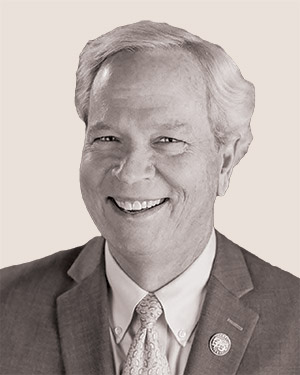
Edward “Ted” Henifin was comfortably retired in August 2022, when one of America’s worst infrastructure crises hit Jackson, Mississippi, the state capital.
Little did the reserved engineer know as he watched television footage of residents waiting in long lines and going days without water that he would be the one overseeing the massive multibillion-dollar effort to finally bring the city’s aging and neglected water and sewage systems to life. in the 21st century
But Henifin has been the right person to lead the arduous task of restoring paralyzed and even non-existent water service to more than 160,000 people. As a former manager of the Hampton Roads Sanitation District in Virginia, he knew the ins and outs of the system’s infrastructure, processes and management.
Henifin was initially named interim manager of JXN Water, Jackson’s drinking water utility, as part of a deal between federal, state and local officials tasked with upgrading the century-old city’s system. He was later appointed to oversee its wastewater treatment operations as well.
Henifin and his team have made a key breakthrough in the rehabilitation: plugging more than 5,000 leaks in the city’s water supply lines that lost about 5 million gallons per day and repairing more than 200 leaks in the treatment system of city waste water. He also oversaw repairs to its two major water treatment plants, including one that is nearly a century old.
Henifin oversaw every aspect of the upgrades, from the nuts and bolts to the massive 48-in. pipe installation.
Technology has also played an important role in the rehabilitation of the water system. More than 61,000 new water meters have been installed. “We’re getting better meter readings than ever before,” Henifin says.
Soft-spoken and low-key, Henifin says rehabilitating the woeful system is not a one-man effort. Many local, state, and federal agencies offer assistance in developing and funding the necessary solutions. He told ENR that with the new attention, Jackson is also moving the water department’s finances from the red to the black.
Before the crisis, about half of the water system’s customers did not pay their utility bills. Now, more than 80% are. It attributes payments to public service personnel to be more visible and responsive. “People in Jackson are seeing work crews fixing lines, fixing leaks,” he says.
The water situation in Jackson was called a crisis when the area was without water for weeks. This could reflect the nation’s water infrastructure as a whole, he says. “Water is an undervalued resource,” emphasizes Henifin. One problem with the U.S. water infrastructure system is that repairs and upgrades are often placed on the back of other projects, he says.
But Henifin also makes it clear that water bills must be fairer for city users. One solution he has proposed is to structure water bills based on the value of a customer’s residence. The higher the value of the home, the higher the price of the water service.
However, members of the state legislature passed legislation to prevent the new fee system from going into effect when they heard about his idea.
Still, Henifin says he wants to stay on the job for a few more years to see the effort through. “The federal wastewater decree ends in September 2027; I’d like to stay at least until then.”

